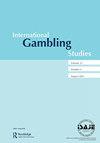Are any samples representative or unbiased? reply to Pickering and Blaszczynski
IF 2.5
3区 心理学
Q2 SUBSTANCE ABUSE
引用次数: 20
Abstract
ABSTRACT Pickering and Blaszczynski’s paper (2021) claims that the problem gambling rate is inflated in paid online convenience and crowdsourced samples. However, there is a methodological flaw in their findings: they combined problem gambling rates from samples that are specific by design (e.g. at-least monthly sports bettors), and compared them to a problem gambling prevalence estimate from the general population. Pickering and Blaszczynski conflate three constructs: representativeness, bias and data quality. Data quality can be optimized through protections and checks, but these do not necessarily make samples more representative, or less biased. Many of the biases present in paid online convenience samples (e.g. self-selection biases) also apply to the gold standard of random digit dial telephone surveys, which is manifestly evident in very low response rates. These biases are also present in industry-recruited and venue-recruited samples, as well as samples of university students and treatment-seeking clients. Paid online convenience samples also have clear benefits. For example, it is possible to obtain large samples of very specific subgroups. Online surveys may reduce bias associated with self-reporting potentially stigmatizing conditions, like problem gambling. It is important not to discount research simply because it uses a paid online convenience or crowdsourced sample.样本是否具有代表性或公正性?回复Pickering和Blaszczynski
Pickering和Blaszczynski的论文(2021)声称,在付费在线便利和众包样本中,问题赌博率被夸大了。然而,在他们的发现中有一个方法论上的缺陷:他们结合了来自特定设计样本的问题赌博率(例如,至少每月的体育投注者),并将它们与来自一般人群的问题赌博流行率估计进行了比较。Pickering和Blaszczynski合并了三个构念:代表性、偏倚和数据质量。数据质量可以通过保护和检查来优化,但这些并不一定使样本更具代表性或减少偏见。付费在线便利样本中存在的许多偏差(例如自我选择偏差)也适用于随机数字拨号电话调查的黄金标准,这在非常低的回答率中表现得很明显。这些偏见也存在于行业招募和场所招募的样本中,以及大学生和寻求治疗的客户的样本中。付费在线便利样本也有明显的好处。例如,有可能获得非常具体的子群体的大量样本。在线调查可能会减少与自我报告相关的偏见,比如问题赌博。重要的是,不要仅仅因为研究使用了付费的在线便利或众包样本就对其进行折扣。
本文章由计算机程序翻译,如有差异,请以英文原文为准。
求助全文
约1分钟内获得全文
求助全文

 求助内容:
求助内容: 应助结果提醒方式:
应助结果提醒方式:


